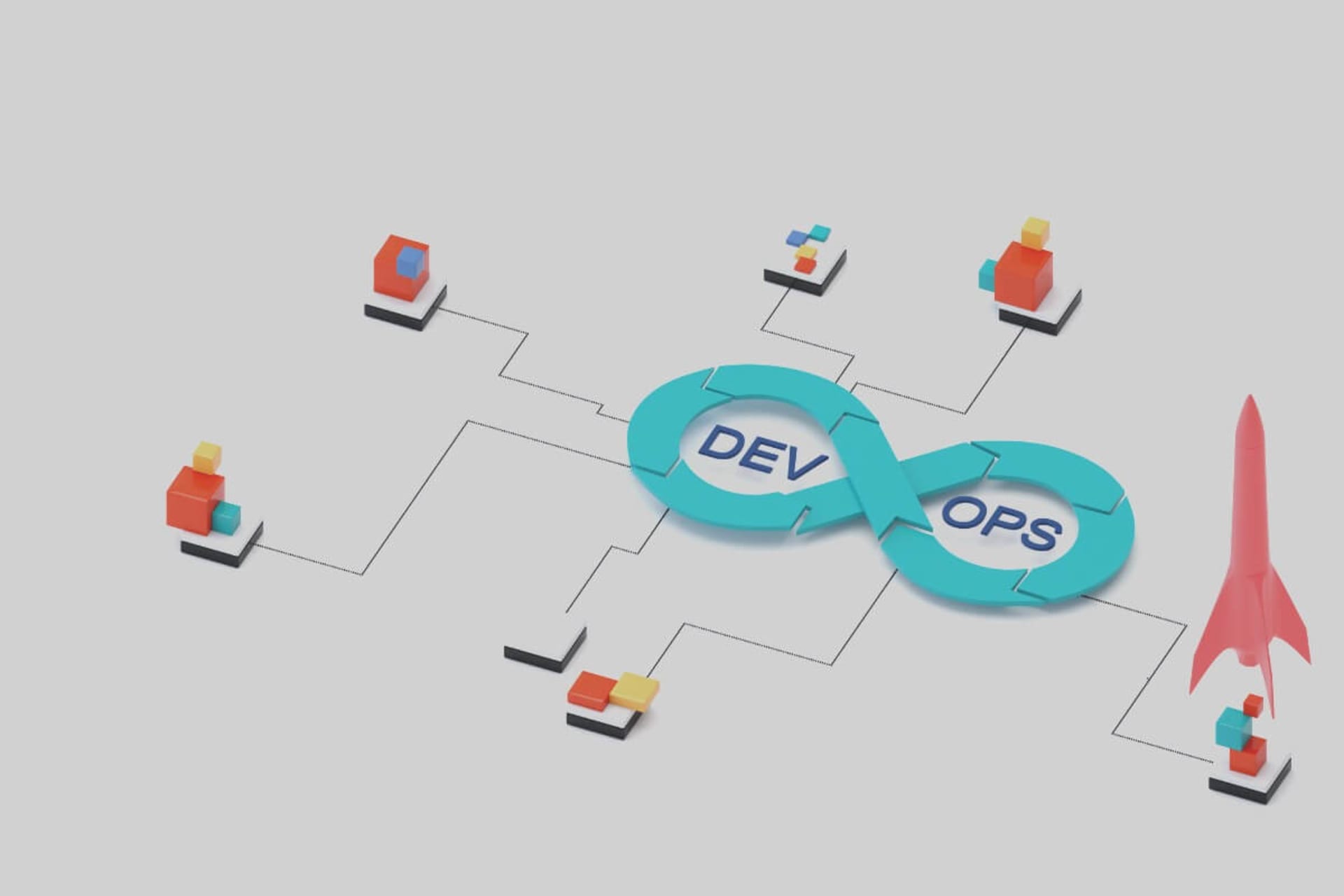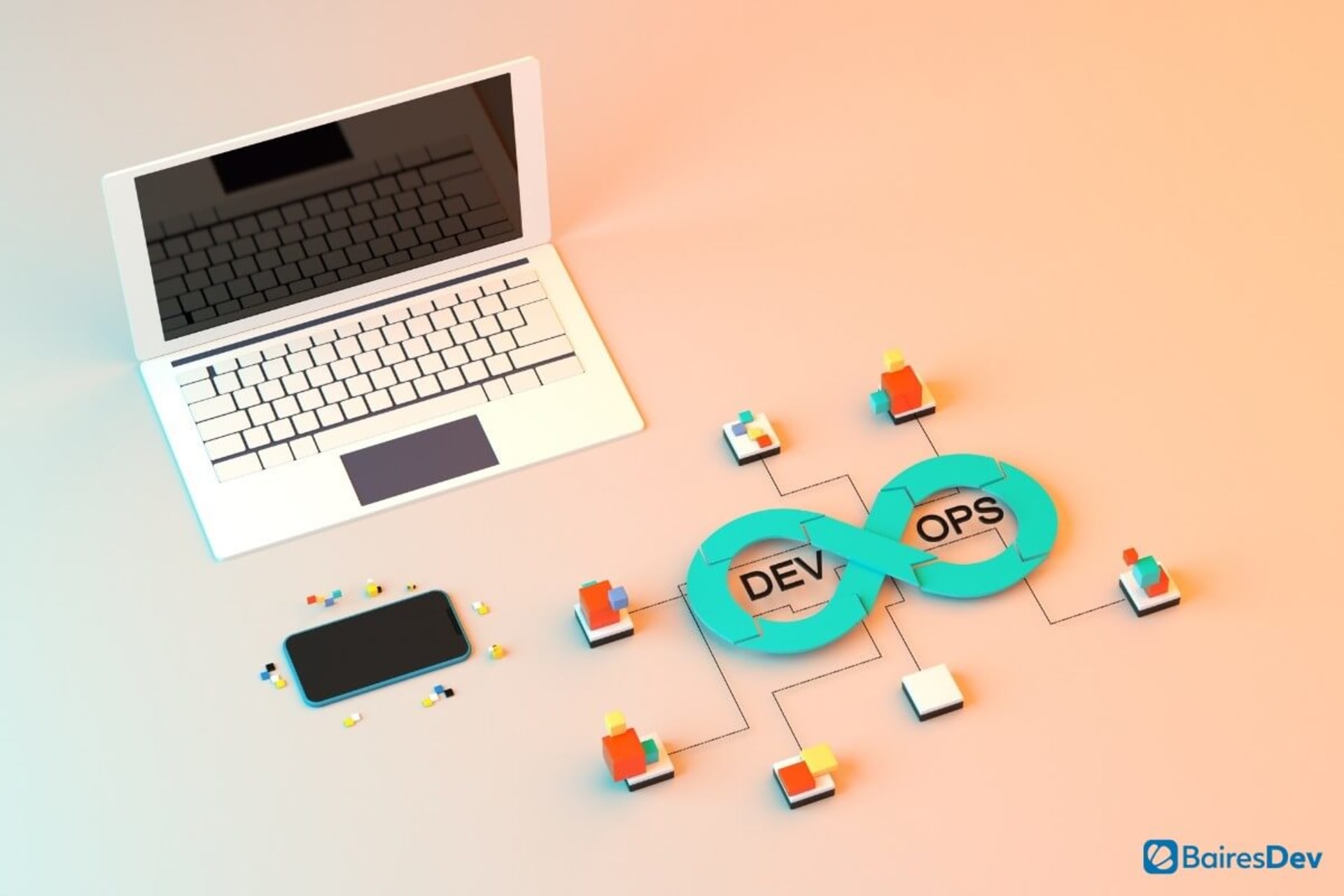DevOps Services & Solutions
Access the top 1% of LATAM tech talent within 2 weeks. Employ robust DevOps practices for improving the development cycle.
500+ companies rely on our top 1% tech talent.
DevOps Development Services We Provide
Continuous Integration and Continuous Delivery
Improve code quality, speed up time to market, and boost collaboration. A cornerstone of DevOps practices, CI/CD pipelines boost efficiency and reliability.
We employ tools like Jenkins, Spinnaker, and Ansible to solidify a pipeline for delivering software quickly and reliably.
Infrastructure Management
Manage your software and infrastructure effectively. In DevOps, infrastructure management is key to operational efficiency.
Balancing automation and manual techniques, we optimize, monitor, and configure technology resources and processes. Our toolkit includes Terraform for Nagios for network management, Docker for containerization and orchestration, Prometheus for monitoring and logging, and more.
Infrastructure as Code (IaC)
Automate traditional IT practices, improving efficiency, consistency, and scalability and reducing human error. Code-based infrastructure involves using high-level, descriptive coding instead of manual setup, configuration, and management of resources and infrastructure.
Using tools like Terraform, Ansible, and Chef we apply IaC practices to cloud environments, microservices, and more.
Automated Testing
Automated testing reduces the chances of human error and allows you to evaluate your software faster. In DevOps, it enables faster feedback, early bug detection, and rapid, reliable software release cycles.
We validate the functionality, security, performance, and other aspects of your application using tools like Selenium, JUnit/TestNG, Jest/Mocha, and Cucumber.
Security Management (DevSecOps)
Manage risks proactively. Enhance security. DevSecOps embeds security throughout the software development lifecycle, making it a shared responsibility.
Leveraging automated security testing, infrastructure as code security, compliance monitoring, threat modeling, and more, we ensure that DevOps solutions are safeguarded against threats.
Configuration Management
Maintain performance and functionality consistency throughout software development processes. Configuration management ensures that your processes and operations are repeatable.
We standardize resource configurations, automate manual processes, and confirm the stability and security of your infrastructure. Tools like Ansible, Puppet, and Chef help us manage configurations.
Gennev case study
We worked with Gennev to quickly put together a healthy DevOps pipeline to ensure website failure was a thing of the past. Gennev Case Study.

Key Things to Know About DevOps
Best Practices for DevOps
Implementing CI/CD involves establishing a systematic, automated process for integrating, testing, and deploying changes. These practices are the foundation of DevOps and help streamline development and delivery.
Automating processes allows teams to achieve faster, more efficient, and more reliable software development. Automation also leads to faster feedback loops, allowing teams to improve quality by detecting problems earlier on.
Regular performance optimization aligns with continuous improvement and agile development principles. It means continuously monitoring, analyzing, and improving the performance of the software application.
IaC involves managing an provisioning your IT infrastructure through machine-readable definition files. This brings automation and consistency to infrastructure deployment and management.
This involves transitioning from a traditional, monolithic application design to a more modular approach, in which the app is comprised of smaller, independent services. The approach aligns with automation, continuous delivery, and scalability.
These tools bring many benefits to DevOps development cycles, such as enhanced portability and consistency, improved scalability and efficiency, better resource utilization, and efficient configuration management.
Managing cloud infrastructure efficiently involves strategic planning, automation, best practices, and continuous monitoring. Key concepts and practices include IaC, cost optimization, monitoring, performance management, scalability, elasticity, security, backup, continuous optimization, and more.
Design and manage systems so that they can efficiently accommodate different levels of demand without compromising on performance or availability. This is important because services must be reliable and responsive in different types of scenarios.
DevSecOps involves implementing security measures throughout the software development lifecycle. These include code analysis and review, automated compliance checks, secrets management, dependency scanning, integrations of security testing in CI/CD, continuous monitoring, centralized logging, and more.
Disaster recovery and backup plans involve planning and implementing procedures to ensure that you can restore your data and system if failures occur. Put strategies in place like performing risk assessments, defining recovery objectives, conducting testing, and monitoring your systems.
DevOps depends on communication among departments and teams, including development, operations, and others.
Collaboration and shared responsibility are central to DevOps. Establishing a culture of open communication and cross-functional teams means everyone is responsible for software quality.
This is critical for tracking system behavior and performance. Practices include real-time observation, alerting and notifications, proactive issue identification, system record-keeping, error logging, performance analysis, and custom reporting.
Version control systems like Git allow you to track changes and collaborate more effectively with team members. Through VCS, you can see and revert to previous versions of your code.
Staying abreast of the latest trends in DevOps, such as maturation as a digital transformation enabler and and increased focus on reducing waste, is important for keeping the software updated.
Why Choose BairesDev for DevOps Development

Top 1% of Tech Talent
We hire only the top 1% of tech talent. Our DevOps engineers and other professionals are thoroughly vetted and stay up to date with best practices and trends in the field.
Robust Security Measures
We employ robust security measures, such as data encryption and code analysis and reviews, to ensure your information and software are safe. Our DevOps engineers implement DevSecOps processes, including automated compliance checks, dependency scanning, and automated testing. We also have strict NDAs in place to protect your business.
Custom Solutions
Through DevOps and agile approaches, we develop custom solutions to meet diverse needs. From web apps and mobile apps to sophisticated systems and migrations, we deliver tailored software for businesses across numerous industry sectors.
Our process. Simple, seamless, streamlined.
During our first discussion, we'll delve into your business goals, budget, and timeline. This stage helps us gauge whether you’ll need a dedicated software development team or one of our other engagement models (staff augmentation or end-to-end software outsourcing).
We’ll formulate a detailed strategy that outlines our approach to backend development, aligned with your specific needs and chosen engagement model. Get a team of top 1% specialists working for you.
With the strategy in place and the team assembled, we'll commence work. As we navigate through the development phase, we commit to regularly updating you on the progress, keeping a close eye on vital metrics to ensure transparency and alignment with your goals.
Frequently Asked Questions
DevOps differs significantly from traditional IT management. DevOps focuses on collaboration, CI/CD, automation, and rapid delivery, while closely aligning with business goals. This is a paradigm shift from traditional IT management, where development and operations are separate. In traditional IT management, delivery tends to happen more slowly.
DevOps can significantly improve the SDLC. DevOps practices offer greater efficiency and agility, incorporating automation and feedback loops. One of the key elements of this approach is that development and operations are intertwined rather than distinct teams and phases. This leads to better collaboration and reduced time to market.
DevOps as a Service is a cloud-based service model that streamlines and automates integration and deployment processes in software development. It combines practices and tools to enhance continuous integration and continuous delivery (CI/CD), infrastructure management, and monitoring.
DevOps integrates with cloud platforms through several measures. For example, cloud computing provides on-demand resource provisioning, which is essential for DevOps automation. IaC tools create and manage cloud resources.
Additionally, the flexibility of cloud environments allows DevOps to scale resources and facilitate iterative, rapid development and deployment. There are several tools, such as Azure DevOps, that support cloud-based deployments.
DevOps is often beneficial for organizations, but there can be challenges such as cultural resistance, lack of understanding, and complexities in integrating new tools into a DevOps pipeline. Through strategic planning and a focus on organizational commitment, you can overcome these obstacles. Working with a DevOps service provider or DevOps consulting services can also help.
How Businesses Can Overcome the Software Development Shortage
BairesDev Ranked as one of the Fastest-Growing Companies in the US by Inc. 5000

See how we can help.Schedule a Call










